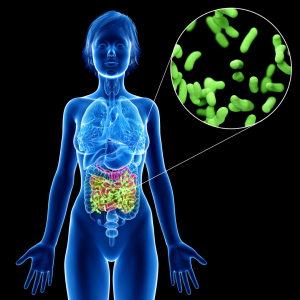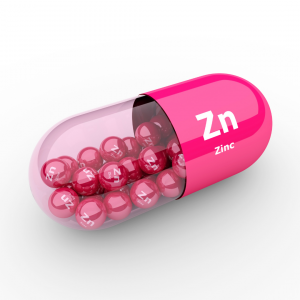9 Tips To Support Your Immune System
9 Tips To Support Your Immune System
The changing of the seasons from summer to autumn brings in cold weather and an increase in coughs and colds. In this blog I talk about my top 9 tips to support your immune system this winter.
There are many theories on why we get coughs and colds in the colder months. Some believe it is mostly down to being inside in closer proximity to others, some believe it’s due to the reduction in vitamin D from the sunshine whilst others believe it links to the air molecule size and how germs can stay in the air longer. It is actually likely to be a combination of many factors but there are ways to ensure that your body is in a position to fight the bugs in the first place. That’s why I’ve written my top 9 tips to support your immune system.
So, in no particular order here is how I think you can help your body fight off coughs and colds.
#1 BOOST VITAMIN C INTAKE

Vitamin C is present in all fruits and vegetables and so it’s important to include these at every meal. The latest government guidelines are to eat 5 portions a day and there are some great details on what counts and what a portion looks like .
Did you know that 100g of red pepper or broccoli or kiwi fruit actually have more
vitamin C than 100g of oranges – so just getting a good mix of all fruits and vegetables will be a great start.
I personally think that we should have a minimum of 5 a day and ideally aim for more. This is easily achieved if you aim for 2 portions at each meal and perhaps 1 piece of fruit as a snack.
#2 DRINK PLENTY OF WATER
My second tip to support your immune system is to drink lots of water! Drinking water is great for health in general BUT did you know it supports your immune system too?
The main way it can help is with the lymphatic system. This system is about 90% water and acts to remove toxins and waste from the body and transport vital infection fighting immune cells around the body. When dehydrated this system can become sluggish which naturally impacts how well the immune system can work. Water also supports our blood volume. The blood needs water to help it transport immune supporting nutrients around the body. Again, with dehydration this may mean that those nutrients can’t get to where they need to be.
We should ideally be drinking enough water so that you pass urine every few hours and that it is a very pale “apple juice” colour. For most people this is around 2 litres but may be more or less depending on weight, exercise levels and the environmental temperature
#3 REDUCE SUGAR
 Sugar is a very inflammatory food and so it actually adds to the burden on your immune system rather than supports it. Sugar also kills the “good bacteria” that lives in your digestive system (see tip number 7!) and it is that good bacteria that is the majority of your immune system. Sugar is found in all kinds of foods from the obvious (cakes, sweets, and biscuits) to the not so obvious (cereals, sauces and flavoured yoghurts). If you think you have too much sugar in your diet currently and what to have less then read my 8 tips for cutting out sugar blog.
Sugar is a very inflammatory food and so it actually adds to the burden on your immune system rather than supports it. Sugar also kills the “good bacteria” that lives in your digestive system (see tip number 7!) and it is that good bacteria that is the majority of your immune system. Sugar is found in all kinds of foods from the obvious (cakes, sweets, and biscuits) to the not so obvious (cereals, sauces and flavoured yoghurts). If you think you have too much sugar in your diet currently and what to have less then read my 8 tips for cutting out sugar blog.
#4 EXERCISE
 Exercise is a little “Goldilocks” in that you don’t want too much or too little. Exercise is great for supporting the immune system as it helps to circulate out lymph (the main component of that lymphatic system mentioned above). With the white blood cells circulating around the body quicker you could in theory detect bacteria or viruses earlier and have a better chance of stopping them. Moderate exercise is also known to be quite anti inflammatory and therefore reduces the strain on the immune system. Extreme and intensive exercise is known to add stress onto the body and potentially weaken the immune system so it’s important to make sure that you exercise regularly and at a moderately intense level to gain the most benefits. Here’s a great research paper for those who like more detail
Exercise is a little “Goldilocks” in that you don’t want too much or too little. Exercise is great for supporting the immune system as it helps to circulate out lymph (the main component of that lymphatic system mentioned above). With the white blood cells circulating around the body quicker you could in theory detect bacteria or viruses earlier and have a better chance of stopping them. Moderate exercise is also known to be quite anti inflammatory and therefore reduces the strain on the immune system. Extreme and intensive exercise is known to add stress onto the body and potentially weaken the immune system so it’s important to make sure that you exercise regularly and at a moderately intense level to gain the most benefits. Here’s a great research paper for those who like more detail
Also, recent studies indicate that exercise and physical fitness diversifies the gut microbiota, enhancing the number of benign microbial communities – see tip 7 as to why that’s important!
#5 PRIORITISE SLEEP
Your body works very hard when asleep and it works especially hard on supporting the immune system and protecting us. Research has shown that sleep deprivation may decrease the production of some very important immune cells and that getting good sleep helps the immune regulation. That might mean that we are more likely to get coughs and colds and other infections. So, to help support your immune system it’s a great idea to get to bed at a decent time in order to maximise how much sleep you can get!
#6 BE LESS STRESSED
 When we are stressed, we have high levels of a hormone called cortisol. When cortisol is high it can reduce the production and efficiency of our immune cells and therefore stress directly links to a higher risk of infections. This is clearly not great news with how much stress there often is in our everyday lives. Whilst there are a lot of sources of stress that we can do nothing about such as “that boss”, the work load, fears and financial pressures, there are lots of stresses that we can do something about. Did you know that alcohol, caffeine and sugars are all stressors? Even over or under exercising can create stress to our body.
When we are stressed, we have high levels of a hormone called cortisol. When cortisol is high it can reduce the production and efficiency of our immune cells and therefore stress directly links to a higher risk of infections. This is clearly not great news with how much stress there often is in our everyday lives. Whilst there are a lot of sources of stress that we can do nothing about such as “that boss”, the work load, fears and financial pressures, there are lots of stresses that we can do something about. Did you know that alcohol, caffeine and sugars are all stressors? Even over or under exercising can create stress to our body.
#7 LOOK AFTER YOUR GUT BACTERIA
 We have more bacteria living in our digestive system than we have cells in the human body – wow!!!
We have more bacteria living in our digestive system than we have cells in the human body – wow!!!
Those beneficial bacteria (your microbiome) are critical in the training, development and ongoing function of the immune system and therefore it is very important that we look after them. The best way to support the beneficial bacteria are to exercise, eat plenty of fruits and vegetables, incorporate fermented foods in your diet whilst minimising sugars and stresses. Fermented foods include sauerkraut, kimchi and kombucha.
Signs that your microbiome might be a little imbalanced and need some support could be bloating, constipation, diarrhoea and frequent infections
#8 MAX OUT ON ZINC
 Zinc is another nutrient that has a critical role in the functioning of the immune system. Zinc is an antioxidant (that means it's anti-aging too!), helps the skin as a barrier in warding off bacteria and helps with the normal development and function of the immune cells.
Zinc is another nutrient that has a critical role in the functioning of the immune system. Zinc is an antioxidant (that means it's anti-aging too!), helps the skin as a barrier in warding off bacteria and helps with the normal development and function of the immune cells.
So, to support your immune system it is very important that we include foods that are rich in zinc. Whilst not everyone has access to or loves oysters they are very high in zinc! If oysters are not your thing then pumpkin seeds, pecans, brazil nuts and wholegrains (such as oats ands rye) are great alternatives to include a little of each day
#9 VITAMIN D SUPPLEMENTS
 And last but most definitely not least is the 9th tip to support your immune system - vitamin D
And last but most definitely not least is the 9th tip to support your immune system - vitamin D
Did you know that vitamin D can really only be sourced by the sunshine and that the government recommends everyone in the UK take a vitamin D supplement throughout the winter months?
Vitamin D is great for bones but has a big role in the immune system too. The darker your skin or the hotter the climate you originate from, the higher your requirement of vitamin D is and the higher the risk of deficiency if you live in a place like the UK where the sun is quite weak.
If you aren't taking a vitamin D3 supplement daily then you should be considering it!
Need Help Making Changes?
Knowing where to start on making changes to help your energy is not always easy and that is exactly where I can help you. It is hard to change habits but together we can achieve it and get you feeling less frazzled.
Why not book a free call with me to see how I can help you achieve your health aspirations (click here) or join my growing Facebook community of woman who want to feel “Less Frazzle and More Sparkle” (click here)
